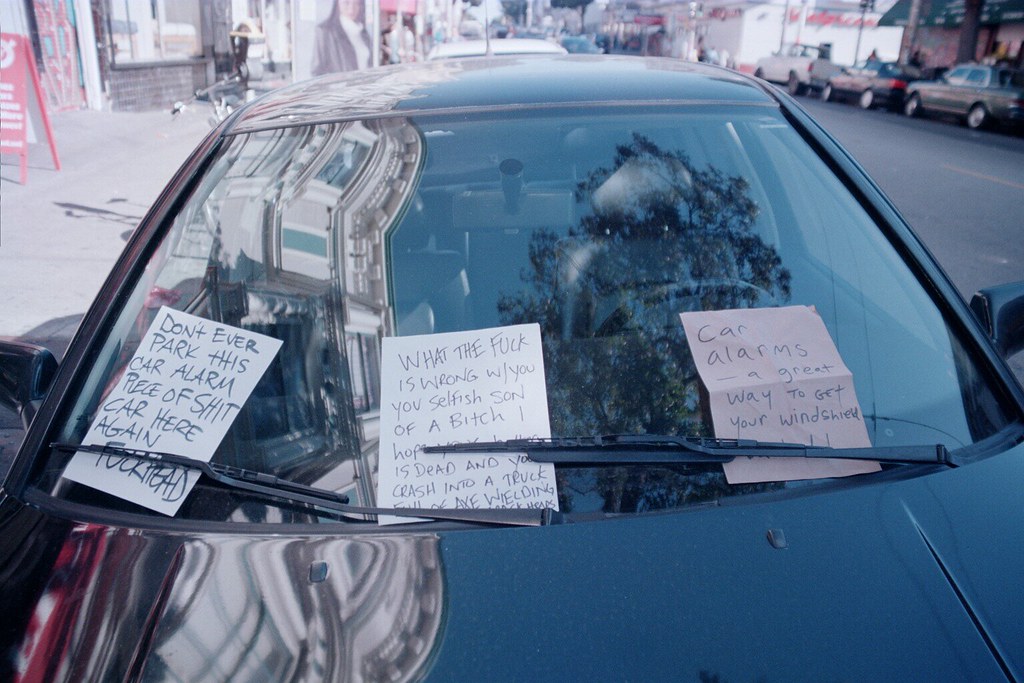
You'll have to forgive me if this post sounds cranky. I lost some sleep last night when I was woken at 3:30 a.m. by a car horn that continuously blared from my neighbor's house for 20 minutes. It was probably triggered by debris blowing in the storm.
Car alarms are not an uncommon sound in my apartment, since my building has a parking lot instead of what could be ground-floor apartments and/or a backyard. My street is also lined with autos parked along the curb and in "driveways" (illegally), so my neighbors and I are surrounded by noise bombs that could be detonated by the slightest touch or glitch.
There are a couple of remarkable things about car alarms -- one is how numb we've become to them, and the other is how utterly useless they are. The two are related.
False alarms account for as much as 99 percent of events in which automobile anti-theft devices are triggered, according to two studies published in the 1990s by the New York State Legislature and the Columbia Journal of Environmental Law. Car alarms are largely ineffective at deterring professional thieves who know how to work around them.
So no one's actually alarmed by them. People are mostly just annoyed. "An audible system is really just a noisemaker," General Motors spokesman Andrew Schreck told NYC's Transportation Alternatives in a 2003 report. "Most people, when they hear an alarm, they just walk the other way."
Banning them seems like a no-brainer, though the legislative hurdles are apparently not insignificant. A TransAlt campaign to ban car alarms in NYC resulted in the passage of a 2004 City Council bill that included only ineffective measures.
Like NYC, San Francisco could -- and should -- be a much quieter place. I know if it weren't for sounds from cars, I wouldn't hear much other noise in my home. It's not just some natural fact of "city life" -- it's a completely unnecessary byproduct of private automobile ownership, one that we've allowed to become inexplicably prevalent and persistent.




